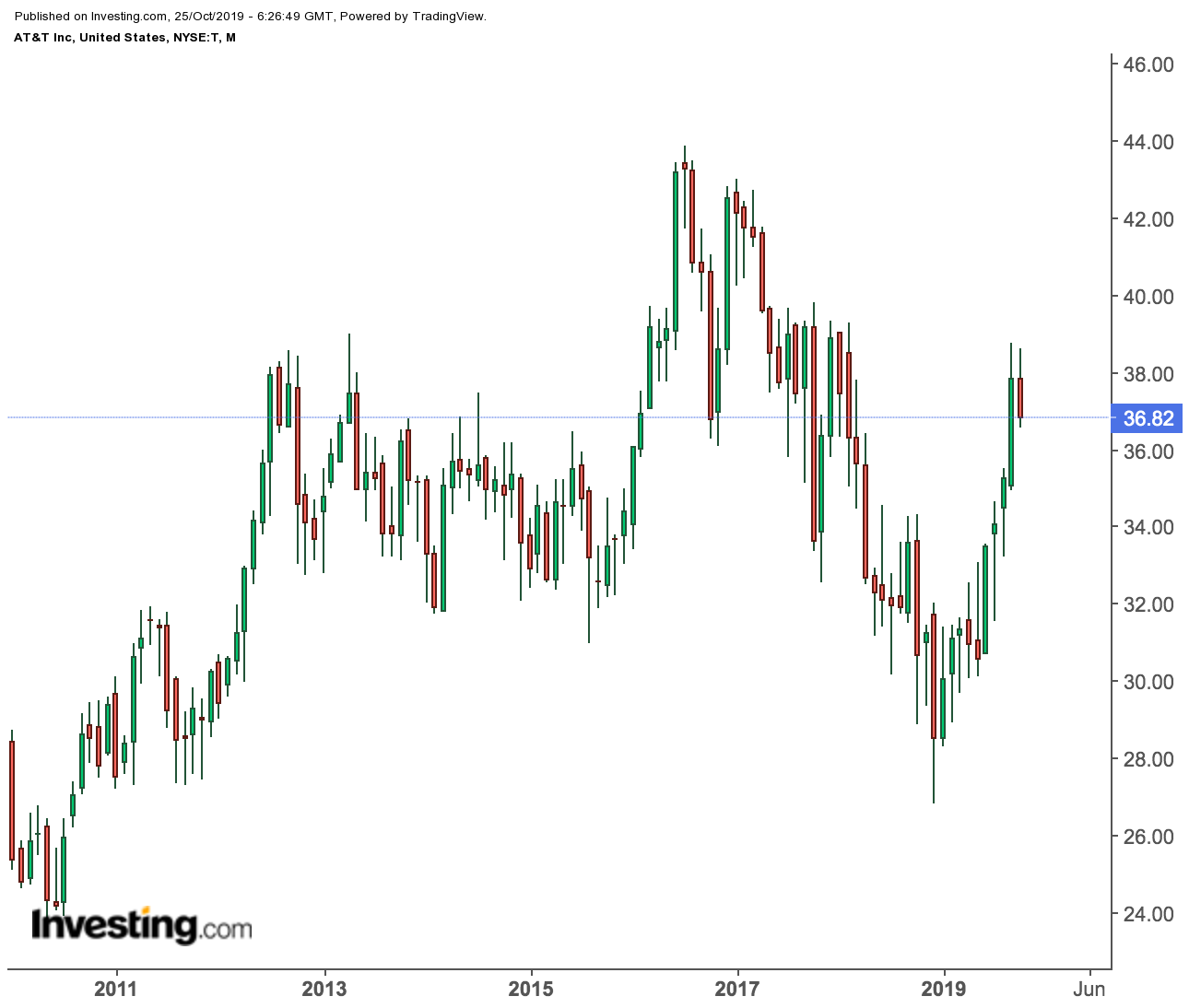* Reports Q3 2019 results on Monday, Oct. 28, before the open
* Revenue expectation: $45.13 billion
* EPS expectation: $0.93
America’s largest telecom operator, AT&T (NYSE:T), has a lot on its plate these days. Before it announces its third-quarter earnings report on Monday, it’s trying to put together a credible restructuring plan to strike a deal with an activist investor campaigning for changes: the utility is steadily losing subscribers and coming under pressure to improve margins.
And a day before earnings, AT&T is scheduled to unveil its HBO Max streaming service, which will make it a contender in the lucrative streaming-video market, where it’ll compete with some of the world’s largest companies, including Apple (NASDAQ:AAPL) and Amazon (NASDAQ:AMZN).
This is the context that makes the company’s Q3 earnings even more important for investors who are concerned about the AT&T’s business direction and the huge debt load it has accumulated.
Shares of AT&T, which has a market value of about $269 billion, have done little for investors in recent years, despite a series of acquisitions by Chief Executive Randall Stephenson and his predecessor. The stock has rallied 29% this year, but dropped 2.4% yesterday, on its fourth straight day of losses. It closed yesterday's session at $36.82. The ups and downs means the shares have remained largely unchanged in the past five years, while the benchmark S&P 500 rose about 50%.
Last month, Elliott Management Corp. disclosed it had amassed, roughly, a 1% stake in AT&T. In a letter, the investor challenged AT&T’s leadership, criticized the company's shift into the media business and called on it to review units that might not fit with its long-term strategy, including its DirecTV satellite division and Mexican wireless operations.
Is A Turnaround Taking Shape?
The big question for investors at this point is whether they should bet on AT&T’s stock now and take advantage of the turnaround that appears to be underway. There are some signs that the company is acting fast to switch tactics as it tries to protect its reputation as a reliable dividend-payer.
AT&T stock is among the top 20 most widely held U.S.-traded companies among institutional investors, according to Bloomberg data — and this is mainly because the utility has disbursed to shareholders a consistently growing payout for 35 consecutive years.
The latest signs of a potentially imminent turnaround came from the company’s Q2 earnings report in July when Stephenson showed that he wants to quickly get rid of low-revenue generating customers by increasing subscription fees for some services.
Earlier this month, AT&T said it is raising prices for its TV Now package by about 30% — its second price hike this year. During the quarter that ended on June 30, the company shed a record number of video customers after raising rates for TV packages. The move helped AT&T meet expectations for profit, and produce extra cash to cover its dividends.
The company is also making headway on asset sales, with its recent divestment of a stake in video-streaming platform Hulu and Time Warner’s real-estate in New York. These measures, combined, sent a strong message to markets — even before the prodding from Elliott Management — that Stephenson does have a plan.
Bottom Line
The rebound in AT&T’s stock this year is the result of a combination of factors, including high demand for dividend stocks, some improvement in its cash position, and the involvement of an activist investor who has a reputation for pushing change in troubled firms in order to shore up their share values. The company’s Q3 earnings will offer more details about its turnaround strategy and the impact on the stock price.
